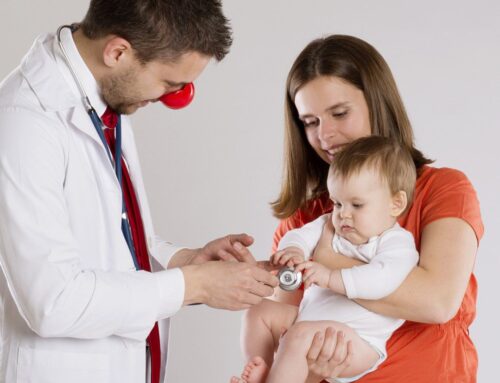With a new child in the family, there are plenty of worries many parents have. One of the most common concerns of new parents is if their child is healthy and developing as expected. Luckily, pediatric physicians have a few common symptoms and signs to look for when checking on the development of infants.
Hearing And Vision
When it comes to pediatric care, one of the most important aspects to check for is vision and hearing, especially in infants. However, this can sometimes be difficult to screen for, as infants do not have the communication skills to convey when they can’t see or hear. More than 95% of newborns undergo a hearing test in their very first month. This is important considering that one to three babies out of every 1,000 babies will have some level of hearing loss. General signs to check for are responsiveness to both visual and auditory stimulus, but your podiatric physician will be able to provide a thorough screening.
Movement And Motor Skills
While movement and motor skills are clearly limited in newborns, there are still some easily identifiable signs of normal physical development. The ability to respond to physical touch, grasp at objects, and other basic motor skills develop fairly early on in infancy. While every child will develop at slightly different rates, your pediatrician providing newborn care will be able to help you identify potential concerns regarding movement and development.
Breathing And Cardiovascular Development
Finally, well checks for infants almost always include assessment of vital signs, including respiration, cardiac wellness, and more. These signs can be early indicators of temporary illness or larger developmental concerns. The best pediatricians will be able to use these to identify potential issues, though more often than not taking these measurements is a way to track growth over time.
Pediatric physicians have a variety of tools to use to track the development and growth of infants and newborns. These indicators can help pediatricians assess developmental milestones as well as identifying concerns as early as possible. For more information on how you can help your child or newborn grow up as healthy as possible, contact Pediatrix today and schedule an appointment.





